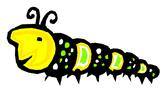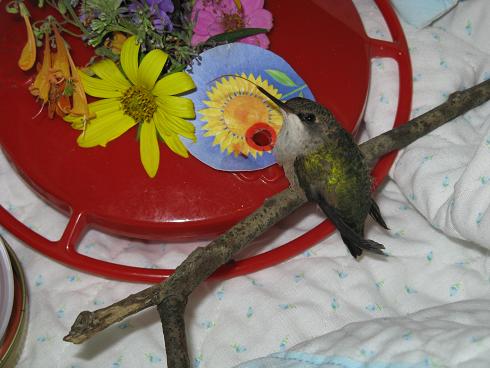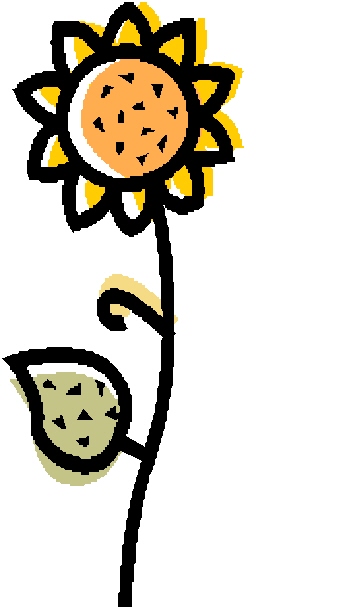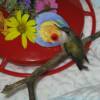C
The local wildlife hospital where we volunteer is often called upon by the community to help raise orphaned babies. During the summer of 2010 there were several hummingbird nestlings which required care until they were able to fend for themselves.
Here, we share some of their stories and photos.
The HUMMINGBIRDS
This little hummingbird came as an advanced nestling. If you look closely, you can still see a bit of fluff on his back. What you can't see is an injury to the right side of his face which was the result of hitting a paved road after having fallen from his nest. As of September 2010, he is still being evaluated for release. In the meantime, he has the luxury of going on periodic garden tours where he likes to sample fresh flowers.
"Branchers" are fledgling birds which have left the nest and are starting to stretch their wings. Still not able to fly, they practice wing flapping in order to strengthen important flight muscles. This brancher wasn't in care very long. He simply needed a few extra days in which to gain the control and confidence of a newly flighted hummingbird.
People often mistake newly fledged birds for orphans. Most baby birds leave the nest unflighted even though they are nearly covered in feathers. The parent birds know exactly where their offspring is and will return to feed it until
the baby is able to fend
for itself.
If you find a bird that cannot fly, it is best to observe its behavior before choosing a course of action. It is most often a gangly, immature bird fresh out of its nest. If the wings are symmetrical, the bird alert and vibrant, watch for parents over the course of several hours before deciding whether or not the bird is truly an orphan.
The hospital uses a special blend of carbohydrates, protein and other important ingredients in the nectars meant for long term care of the hummingbird babies. It is very important that they receive a proper diet during their development.
Never use honey in nectar solutions for hummingbirds. The naturally occurring bacteria in honey can be lethal to birds.
Click to enlarge photos
Have you planted YOUR milkweed, yet? }i{
Have you planted YOUR milkweed, yet? }i{
MONARCHS & MILKWEED
HUMMINGBIRDS
JUST FOR FUN
SPONSORSHIP PROGRAMS
POLLINATION STATION
POLLINATION
SHOP




